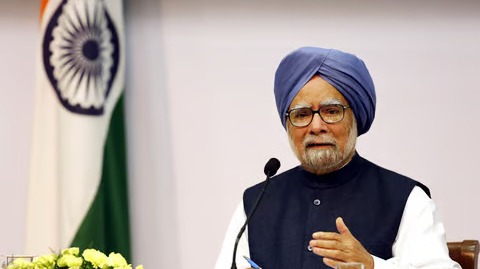
Manmohan Singh, the former Prime Minister of India, recently passed away, leaving behind a remarkable legacy in Indian politics and economics. Born on September 26, 1932, in Gah, Punjab (now in Pakistan), Singh was a highly respected economist whose work transformed India's economy.
Singh made his mark as Finance Minister in 1991 during a time when India faced a serious economic crisis. He introduced bold reforms that opened up the economy, moving it from a closed system to one that embraced investment and competition. By removing many restrictions on businesses, lowering tariffs, and encouraging foreign investment, Singh helped stabilize the economy. His efforts set the stage for rapid growth, lifting millions out of poverty and connecting India to the global market.
As Prime Minister from 2004 to 2014, Singh continued to advocate for economic reforms while also focusing on social welfare. His government launched initiatives like the National Rural Employment Guarantee Act (NREGA), which aimed to provide at least 100 days of guaranteed work each year to every rural household. This program significantly improved the lives of many in rural areas, providing them with a safety net and better opportunities.
Singh was known for his calm and thoughtful leadership. He worked tirelessly to build consensus and navigate the complexities of coalition politics. Under his leadership, India became one of the fastest-growing economies in the world, achieving an impressive average growth rate of around 8%.
Despite facing criticism for some challenges, including corruption scandals and economic slowdowns towards the end of his term, Singh's reputation as a reformer remains intact. He is often credited with laying the groundwork for India's economic success in the 21st century.
In summary, Manmohan Singh's contributions to India's development and his leadership during critical times have left a lasting impact on the nation. His vision for a better and more inclusive India will continue to inspire future generations. His passing marks the end of an important chapter in Indian history, but his influence will be felt for many years to come. Singh will be remembered not just for his policies, but for his dedication to the progress and well-being of the Indian people.
